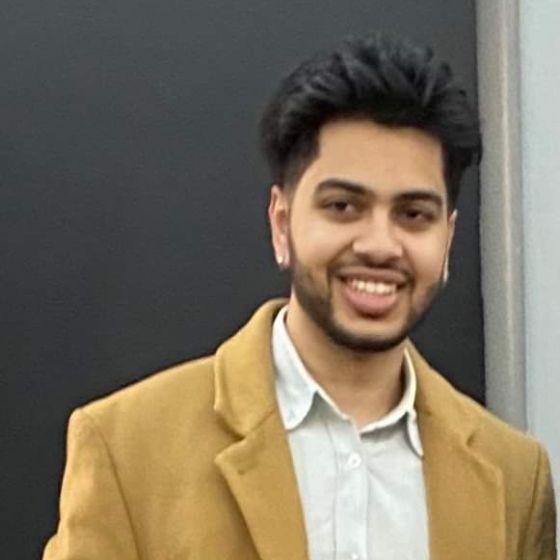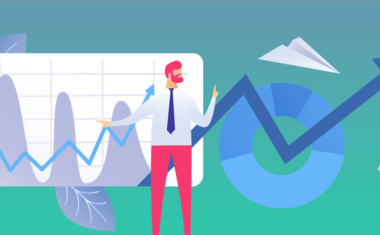Real Talk With Clover Health’s Chief Data Scientist


We recently sat down with Ian Blumenfeld, chief data scientist at Clover Health, to discuss his decade in data science, how the job has changed, how to make the most of mentorship, and much more.
The full video Q&A is below, but here are some of the highlights.
You’ve been doing data science for 10 years now. How has that role changed over the years?
The biggest difference has really been that you need to be able to, if not write production code, at least interact with production software systems now. Ten years ago, if you could write SQL reports and then send them off to someone to make a decision, that was good enough. Now it’s kind of hard to make a high-level impact if you can’t write code that 10,000 or more people are going to interact with through some kind of software product.
Let’s talk a little bit about your own startup. Do you want to give us a little bit of a background on that?
Coming out of my first job, I just sort of had an itch of like, I want to do something for myself. It was a healthcare data machine learning-based startup. It was a complete and total failure.
What were some of your biggest learnings?
I mean, the big meta-learning is essentially: the market has to want something for you to do it. Like, just because you think you’re a smart person does not mean that you’re going to build something that anybody wants. Having that experience of launching a failed product helped me get a lot more critical about my own work and also the decisions that I was making going forward in terms of what I should be working on and who I should be working with. And so I ended up developing through that an owner/investor mindset.
So when I went to look for a job after that, part of what I was assessing was essentially like, alright, if I go work for this company, I’m making a large investment in them, right? Even though other people are putting up the capital, I’m putting up my time. And so, is this a thing that I have reason to believe could be successful? Is it well set up? Is the environment ready for it? I look at my current job and say, alright, what should I be spending my time on? It’s through that same lens.
So now, present day, you are a chief data science at Clover. What are you doing there and what problems are you currently solving?
Clover is still a startup. We’re on the larger side of a startup at this point. I do a lot of work on our machine learning platform, kind of looking at what kind of models we can produce to do a good job of really identifying health risks so that our clinical teams know where they should be focusing their resources. And I also spend a fair amount of my time thinking through how we can address the problem of like, what next?
Anyone who works for a commercial operation basically knows at this point that the machine learning and the predictive modeling part is a relatively small slice of the problem. And once you get models that start to perform, the next question that you’re going to get is: OK, now what do I do?
And so I’m essentially starting to spend more and more of my time working through that part of the problem, which is half understanding what do these models actually do and then half kind of understanding from our operations perspective what are their capabilities and how do we figure out how much those things together?
How has your role progressed through your data science career?
When I first started, I was writing a lot more code than I do now. Part of that is tools—the tools have gotten way better over the last 10 years, which means I have to write less code to solve the same kinds of problems. But part of it is there are more people that sit around me that can help. And so that means that I have to spend some amount of time figuring out, alright, who should be doing what and how do I lop off parts of these problems that are really appropriate for people at different stages in their career developments? I do a lot more mentoring than I did. And I spent a lot more of my time thinking through what problems should we be solving versus how do we actually solve them.
This is where the breadth becomes useful because then you can say something like, “OK, we need to solve this problem. Here are the classes of types of methods that might be appropriate. Here are a few papers and blog posts that go into them.” And I can kind of send someone on their way. I used to do all that stuff myself. I don’t do all of it anymore.
A lot more delegation now.
I think of it as like, less delegation and more like giving other people the opportunity to step up. Because if I keep all of the interesting parts of a problem to myself, like hey, great for me, but someone else is sort of losing the chance to try to do something interesting and valuable and useful.
Get To Know Other Data Science Students
Pizon Shetu
Data Scientist at Whiterock AI
Abby Morgan
Data Scientist at NPD Group
Ginny Zhu
Data Science Intern at Novartis
You spoke to how your role is currently a little bit more about mentoring. What does mentorship mean to you?
It’s really about helping folks build a framework within their own careers for how they should be making decisions so that they can own what their career path and their career progression is. I think there’s a tendency, especially in large companies, for people to come in and say, “OK, the rubric looks like this. I am a level four and I would like to be a level five.” But you as an individual also need to have a view of where you would like to go.
And there are places where that’s going to align to the rubric and places where it’s going to diverge—and where it diverges is kind of like your opportunity to take a risk and to try to do something. But if you don’t have a good framework for understanding, well, how do I make those kinds of decisions, it can become very hard and you end up just playing the video game of like, oh, now I’m a level five, now I’m a level six. And then you look back after 10 years and say, is this the career I actually wanted? You’re lucky if the answer is yes.
Outside of foresight and a bit of risk-taking, what do you think it takes to be a good mentee?
Curiosity. Humility. There’s just lots of stuff you don’t know. And a willingness to try things. The people that I’ve mentored that I think have gotten the most value out of it are the ones who basically said, “OK, I want this mentorship because I think I should be doing something different than I am doing.” And are then willing to actually go out and do that different thing. If you’re not willing to do something different then you are currently doing, it’s very hard to get anything out of mentorship from anyone, no matter how good that mentor actually is.
What are two things that you feel sets apart a great data scientist from just a good data scientist?
So, when I think of good data scientists versus great data scientists, a good data scientist indexes to value, understands what the business is actually trying to do, and can deliver outcomes. A great data scientist has creativity and judgment wrapped up in that package.
So that means that, 1) not only do they understand what the business is trying to do, they also can map that onto the relative priority of, well, what should they be working on? And so they are able to identify like, alright, out of these 10 possibilities, these two problems are by far the most important ones, and that’s where they’re going to spend their time. And the other eight, don’t even think about it again. And then they can also look at a set of methods or a set of prescribed solutions to those kinds of problems and basically know, OK, this is solved and I’m going to copy here or listen to the experts here. But this area, this doesn’t look right to me.
And so, then they can dig down and reason from first principles and figure out: where do I need to be contrarian versus just do the thing that all of the papers say that I should do? Great data scientists exit the rubric.
This Q&A has been lightly edited and condensed for clarity.
If you’re unfamiliar with Clover Health, it’s a health care company that provides Medicare Advantage insurance plans and Medicare contracts. Clover Health was launched in 2014 and has been continuously growing since then. Clover Health also has a lot of fascinating opportunities for developers, data scientists, and machine learning engineers.
Since you’re here…
Curious about a career in data science? Experiment with our free data science learning path, or join our Data Science Bootcamp, where you’ll only pay tuition after getting a job in the field. We’re confident because our courses work – check out our student success stories to get inspired.






